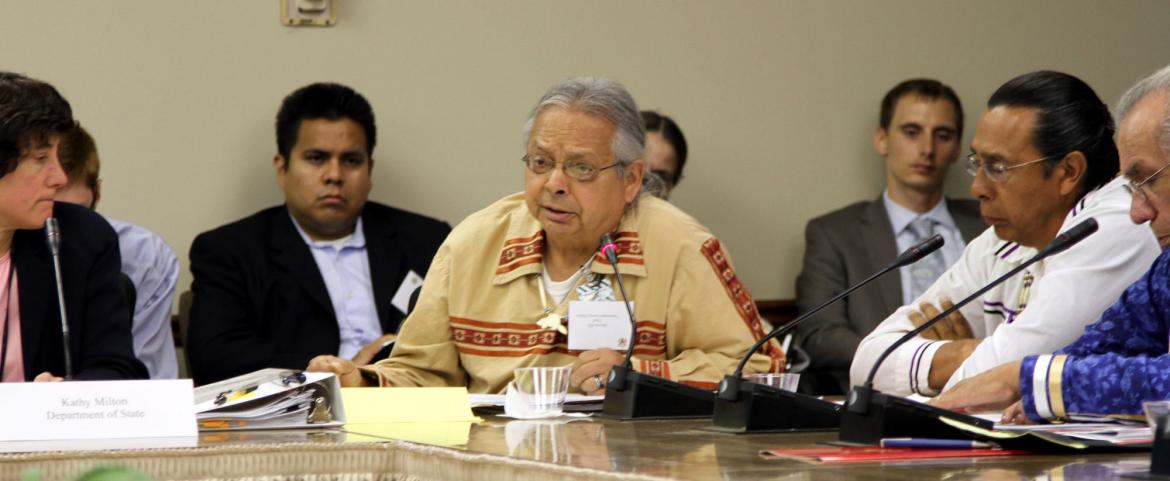
Earlier this week we marked the 70th anniversary of the Universal Declaration of Human Rights. The UDHR became a benchmark in international human rights when it was adopted by the United Nations in 1948 – explicitly recognizing the inherent and inalienable rights and freedoms we all are entitled to as human beings, regardless of our sex, race, religion, or other status.
The United States played a leadership role in drafting the Universal Declaration.
Nearly 30 years later, it was tribes in the United States -- the Six Nations Iroquois Confederacy -- that launched the idea of a United Nations Declaration on the Rights of Indigenous Peoples, seeking recognition of their collective rights to land, languages and culture as international human rights. The first draft of what would become UNDRIP, prepared for the Confederacy by Robert T. Coulter, began:
… Noting that the Universal Declaration of Human Rights and related inter-national covenants have the individual as their primary concern, and
Recognizing that individuals are the foundation of cultures, societies and nations, and
Whereas, it is a fundamental right of any individual to practice and perpetuate the cultures, societies and nations into which they are born…
Be it affirmed, that,… Indigenous peoples shall be accorded recognition as nations…
In contrast to the UDHR, which took fewer than three years to go from concept to adoption, UNDRIP would take 30 years to negotiate. Yet indigenous peoples’ conviction and diplomacy ultimately led to a major advance from the Universal Declaration of Human Rights and other international human rights law. It cements indigenous peoples’ legal rights as social, cultural and political communities; it recognizes “that indigenous peoples possess collective rights which are indispensable to their existence, well-being, and integral development as peoples.”
Further, while the UDHR was adopted by consensus in 1948, four countries voted against UNDRIP when it was adopted in 2007. The United States was one of the four, and it was the last to reverse its opposition, doing so on December, 16, 2010, an important milestone that we celebrate this week, too.
As those of us in the United States commemorate these human rights anniversaries, many of us mourn the loss of the country’s leadership on human rights. Under the Trump administration, the United States has abandoned or threatened to walk away from all sorts of international agreements and bodies—the Human Rights Council, the Paris Agreement, trade agreements, and more. And it’s equally distressing to see the current Administration’s contempt for human rights being used as a model and emboldening other authoritarian leaders.
At home, President Trump’s public statements demean and undermine our courts and seek to interfere with our nation’s law enforcement and justice system to gain political advantage. His bigotry, prejudice and chauvinism is seeping into all aspects of federal policies and practices, putting vulnerable people in increased danger and undermining constitutional protections for everyone’s human rights.
Despite the Universal Declaration, the UN Declaration on the Rights of Indigenous Peoples, and many other human rights standards and laws, the reality has always been that human rights are not a given but a goal. Respect for human rights is ongoing struggle to get and to keep. When human rights are violated anywhere in the world, everyone’s rights are threatened.
It’s up to us to stand up for human rights. President Trump is not the United States of America; we the people are the United States of America.
Join us in standing up for human rights. Learn more about the rights proclaimed in the Universal Declaration of Human Rights and the UN Declaration on the Rights of Indigenous Peoples. Learn how tribal nations can use international human rights to address the actions of the Federal Administration. Support the Indian Law Resource Center by making a donation today!
